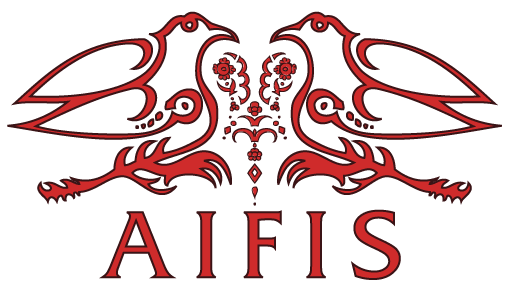To enhance the academic atmosphere during the covid-19 pandemic and to support our mission in promoting academic and research collaboration among scholars, The American Institute for Indonesian Studies (AIFIS) and Faculty of Cultural Studies-Universitas Brawijaya will jointly organize a public talk on language practices and ideologies in Indonesia. In this presentation, AIFIS Fellow and Fulbright English Teaching Asisstant alumni, Moniek Van Rheenan (Ph.D Candidate, University of Michigan, USA), presents the findings from her study in Indonesia on multilingual interactions between ethnic groups in Pekanbaru, with a focus on former migrants and their generational successors.
Due to this pandemic year, the event will be organized virtually via Zoom and broadcasted live on Youtube. It will begin with a 45 minute presentation from the speaker and followed by open discussions with the rest of participants. The webinar is conducted in English and Indonesia, and open for the public.
Date & Time: Thursday, October 28 at 7pm WIB / 8am EDT
SPEAKER
Moniek van Rheenen is a PhD candidate in Linguistic Anthropology at the University of Michigan, Ann Arbor. Her current research aims to complicate the narrative about conservative Muslim women in Indonesia and argues that they are not passive repositories for male preaching and Islamic knowledge; rather,they are deeply engaged in political and social activism in ways that have resounding effects on Indonesian politics and society, although their labor often goes unseen. She was awarded a full grant for the 2014-2015 academic year in Indonesia on behalf of the Fulbright English Teaching Assistant Program and taught English in SMAN 8 Pekanbaru. Her dissertation research is supported by Fulbright, AMINEF, and the National Science Foundation. She also received an AIFIS-CAORC grant in 2018 to conduct research in collaboration with the State Islamic University of Sultan Syarif Kasim Riau in Pekanbaru.
ABSTRACT of the Speaker:
This project explores the effects of modern migration on youth linguistic practices and identity formation in Pekanbaru, Indonesia. My research questions center on the way that local languages of former migratory families do or do not get appropriated by the youth generation, and how the nationalist idealization of one motherland, one nation, and one language from the colonial and post-colonial era is coming to fruition in present-day Indonesia. Specifically, my project probes at the following questions: how does the language use of youth born in Pekanbaru differ from the language use of their elders (parents or grandparents) born in rural communities and later migrated to Pekanbaru? If such variation exists, what are the reasons for it? How much multilingual variation occurs in the speech of different generations still living in the kampung, comparatively? What might these multiethnic and multigenerational linguistic practices and patterns index about orientations towards globalization or national unification?

